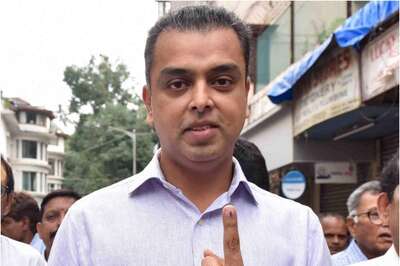
views
THIRUVANANTHAPURAM: While this paper was on its way to the printing press, the 65th World Health Assembly of the WHO was discussing the polio vaccine at Geneva in Switzerland. The topic of discussion was intensification of the global eradication initiative.Just a few days ago, United Nations Secretary General Ban Ki-moon had written an article in the ‘Los Angeles Times’ that was reproduced the world over, calling on the world to respond to the threat of a resurgent polio, a global public health emergency.Today polio survives in only in three countries - Afghanistan, Nigeria and Pakistan. India was declared polio-free in January. Yet, there is a warning that a renewed outbreak could cripple 1 million people within the decade, many of them children.How could this happen, especially since the relatively successful global campaign for eradication of polio had begun nearly quarter of a century ago? While in wealthy nations, an injectable vaccine of killed viruses were used, the developing nations made use of the oral vaccine that had weakened viruses against three strains of polio viruses - Type 1, 2, 3.The ‘Scientific American’, in its April issue, has a report - ‘Polio’s Last Act.’ It talks about a component of the oral polio vaccine that causes more disease than the virus it is supposed to fight. It says that Type 2 poliovirus no longer exists in nature, the last case from naturally circulating Type 2 virus was reported 13 years ago.If the oral vaccine had inactivated or killed Type 2 virus, there was nothing much to worry. ‘Scientific American’ says that at least in rare cases, the weakened viruses can turn virulent and cause the disease it was supposed to prevent. If the risk of paralysis comes not from nature, but from a vaccine, is it ethical to go on using it, was the question.It is not just the vaccinated children who were affected. The vaccinated children excrete vaccine viruses in their stools - in households, playgrounds and communities and these vaccine viruses can spread from the vaccinated to the unvaccinated.‘Scientific American’ says that the biggest outbreak of vaccine-derived polio began in 2005 and is still underway in Nigeria, where the spread of Type 2 vaccine virus among unvaccinated children has crippled at least 376. Vaccine-derived viruses from that epidemic had also spread to Niger and Guinea. Dr Jacob John of CMC, Vellore was one of the first virologists to call for the removal of Type 2 viral component from the oral vaccine, thus making it bivalent. Now, the Global Polio Eradication Initiative (GPEI) is garnering support for a change in the vaccine content. That is how the withdrawal of the oral vaccine’s Type 2 component got to the discussion table of the ongoing World Health Assembly.The campaign is on to switch over from the widely used live vaccine with three components to new versions with two components and ultimately to the withdrawal of the live vaccine. The US had started a gradual phasing out in 1997.The Strategic Advisory Group of Experts (SAGE) of the WHO, that looks into the technical details for immunisation, is learnt to have asked for further information before making a decision on when, how and under what conditions such a switch can occur.Questions have been raised over the cost of the injectable vaccine, the shortage of trained personnel for the same, manufacturers who might need to do additional safety trials and safety of making the change rapidly, especially if Type 2 virus is still around. But if all goes well, the GPEI hopes to make a switchover from trivalent to bivalent oral vaccine sometime between April 2013 and April 2014.(Keep track of the Sci-bug, every Saturday. And do not forget to give us a feedback on [email protected])
















Comments
0 comment